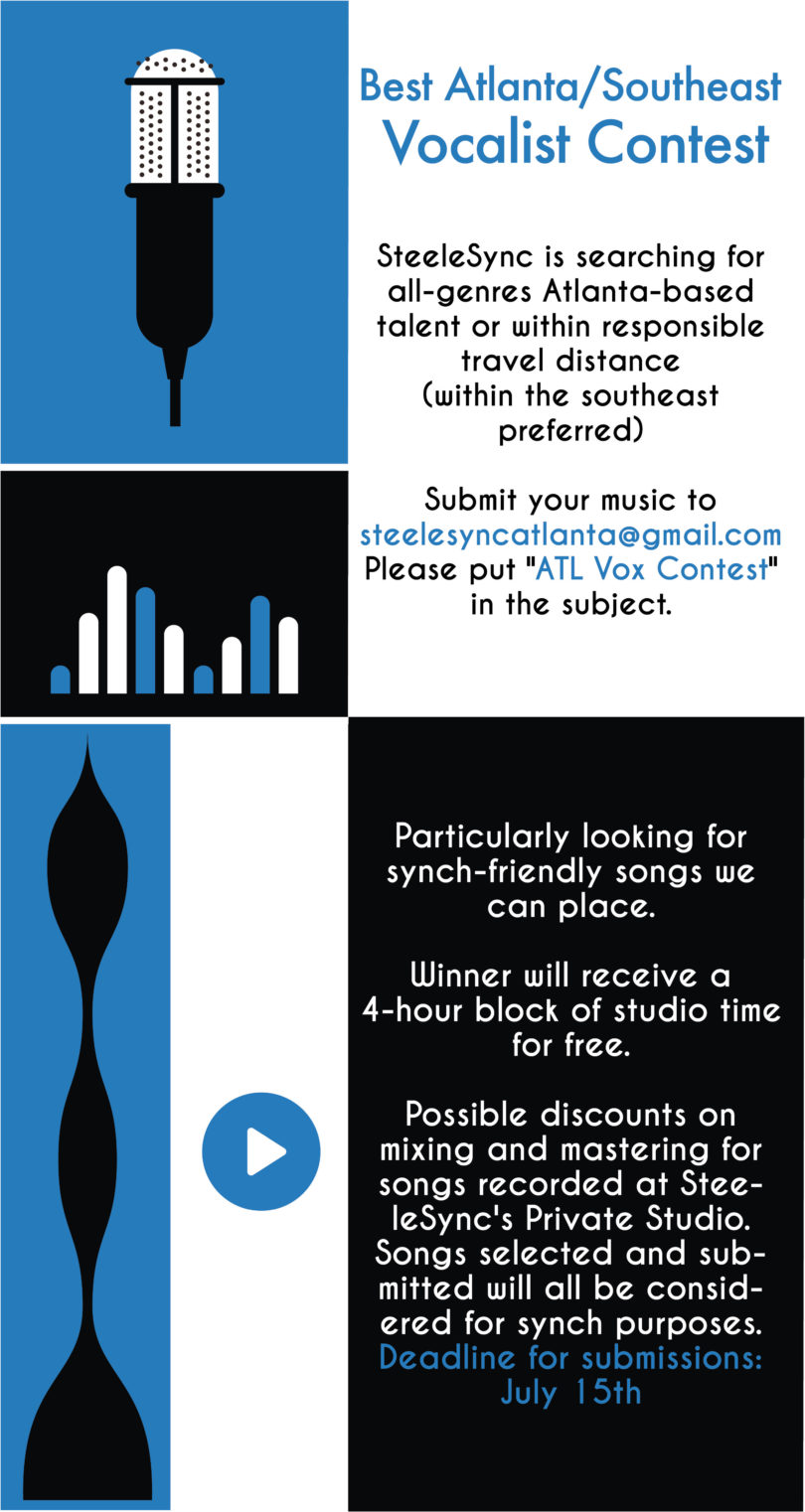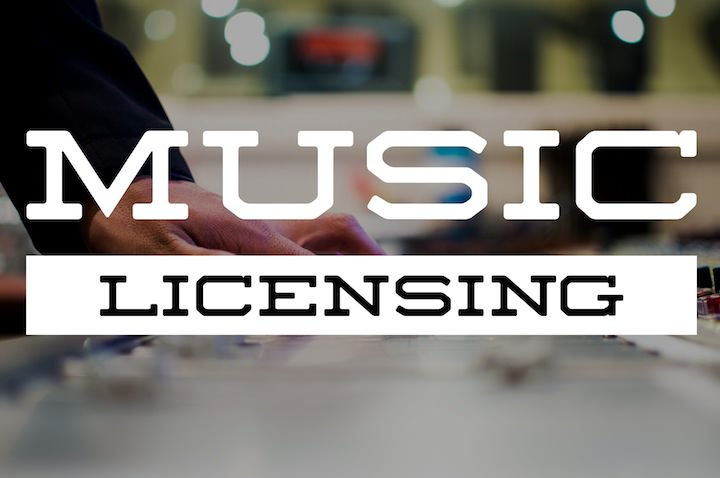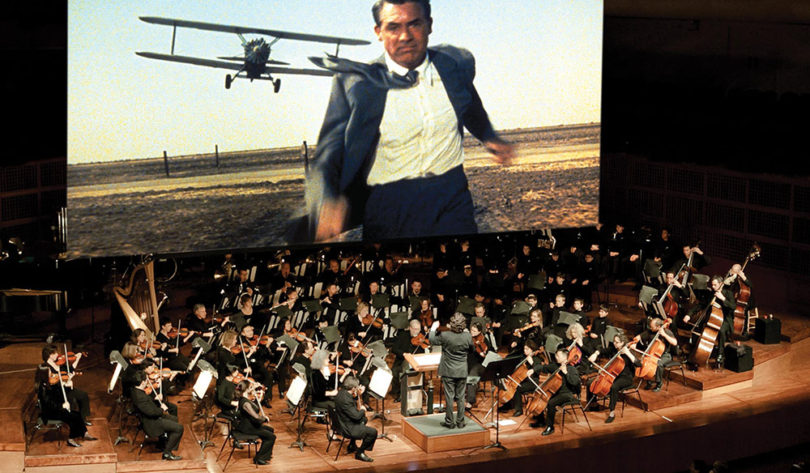Posted by adminsteele on May 23, 2019
I am writing this research paper with the purpose of sharing my knowledge of music licensing. Music licensing is when music is synched with film, television shows, video games, webisodes or ads. Music licensing is intended to ensure that the owners of copyrights and masters on musical works are compensated for certain uses of their work. It’s common to have songs licensed with lyrics that support the story, or reinforce an idea, emotion, event or action. There are two main players in music licensing. The person or party who authorizes permission to use a song based on those terms and conditions outlined within the final draft of the agreement is called the licensor. The person or party who seeks or is given permission to use a song is called the licensee (Wilsey). This paper will be focused mainly on the licensor who typical are the music licensing companies. This paper provides my extensive research to an audience that is interested in learning more about what makes a music licensing company successful, as well as why certain artists are also successful in music licensing.
The first concept to realize when being successful in licensing and running a successful music licensing company are the connections and relationships you make with people within the business. In the music licensing business and in the entertainment business in general people make up the business. A company that has mediocre music but strong relationships within the business will go so much further than the company with outstanding music but no relationships at all. One example showcasing this is the CEO of DangerBird Records, Jeff Castelaz. Castelaz was able to find a distribution deal from networking. Castelaz friend who was head of sales at Warner Brother records, referred Andy Allen. His friend vouched for him and even though he had to go through a detailed vetting process with Allen, he ended up getting the deal. Jeff would not have made that deal if he did not have such a strong relationship with his friend at Warner (Jeff Castelaz). Lynn Grossman, Owner Of Secret Road, has two more examples. Lynn arranged her first music supervisor job on House by bringing with her another supervisor, a friend of hers, to meet with the production company. While she was out of the country her friend, Andrea Von Foerster, ran her company and signed up Ingrid Michaelson. Since then, Ingrid’s music was used on Grey’s Anatomy and later on a Navy commercial. Michaelson later landed the cover of Billboard magazine from her success. Today Grossman not only represents Ingrid’s music in music licensing, but also manages her (Lynn Grossman).
As you can see the right connections can lead you to success. Music supervisors usually do the administrative work such as clearing the tracks with publishers, record companies and whoever owns the masters. A music supervisor’s job is to clear all of the rights of the music so there is no possible copyright infringement. They are also the liaison between the composer and the editor, producer and/or director. Music editors are also important as they do the actual job of synching the music to the show in post-production. Many times they will go ahead and synch some music temporarily to a scene, and if the music it actually works it can be authorized later by the music supervisor (Tarquin). Other connections, such as heads of production companies, directors, and producers, can also be key in licensing.
The next thing that can make a successful music licensing company is growing a quality catalog. It can be beneficial to have a large catalog of songs but it is important to have quality songs. Quality over quantity is key. This is why I am very selective in who I sign on to my roster. I only take less then the top five percent of submissions I receive. Of course I would like to have over half a million songs like APM has in their catalog but for right now I’m focused on adding one outstanding artist to my catalog at a time in hopes that the cream will rise to the top. Tanvi Patel, the CEO of Crucial Music gives us a great example. In the early years of running her company she took on a band called The Elliots, a Swedish band from Gothenberg. Crucial Music was able to land them a few high-profile placements in some prime time shows and because of that they received some good press including a big article in a Gothenberg newspaper. Due to the popularity of the article many other bands from Sweden started pitching their music to Crucial Music. Having more submissions means it becomes harder as they had to listen to much more music but the positive side of this all is they can afford to be a little bit more pickier on which song to take in. So the idea of growing a quality catalog is emphasized. Less is more in this situation and it pays to be pickier. The music you pitch for opportunities reflects your company. You want to put your best foot forward. Also you do not want to sign something that does not meet the right quality standards. There is no point in signing something your not able to pitch or risk pitching sub-par music that can ruin your reputation (Goetz).
The music in your catalog should be quality but also diverse to meet different needs. For example, It is good to have uptempo party songs in the catalog, but that is not all you should have. You need slower sad songs, dark songs, love songs and everything else between. Also, it can be highly effective to focus on a certain genre like many music licensing companies do but if you have several genres you may be able to fill more cues. For those who might not know, a cue is a piece of music used in music licensing (film/television/ads/video games). There may be a dozen or more cues on each project. An example where this may really benefit you is if your working directly with a film director on an independent film and are able to fill different genre cues across a project therefore saving the director precious time compared if he had to reach out to multiple other companies and musicians to fill those needs.
The third most important aspect of running a successful music licensing company is to actual know what your doing. There are many music licensing companies that are popping up left and right. The problem is not all of these new companies carry the experience and knowledge of performing their job like they should do. Knowing how to pre-clear the music so that both the master side and the publishing side are both cleared in extremely important. Knowing all this upfront saves you a lot of headaches. If you pitch something that has a problem connected to it, then you’re connected to the problem, and someone will remember that more than they’ll remember you. So pre-clearing all the music shows a music supervisor that they can trust you and there is not going to be some publisher or songwriter coming out the woodwork once a placement has been secured. I actually put in all the writers and publishers information in the metadata of the mp3’s I pitch. If a music supervisor like a song I send they can download it and check the metadata. The metadata can include everything from tempo, genre, mood, writer’s names and split percentages of the song, lyrics, artwork and whatever else you would like to add such as contact info. This metadata is important because all of this data is searchable within many software programs such as one of the most commonly used iTunes. Another key term that should be found in the metadata is one-stop. A one-stop is when the same person controls the writer’s side of the record and the publishing side. You can see when there can be five different writers and publishers on a record how this may look much more appetizing to a music supervisor who’s job is to track everyone down.
Danny Benair, owner of Natural Energy Lab says it best by saying you first must understanding what someone needs. “If someone says I need a female singer songwriter that has a song about “light” and “bright”, and you don’t have it but send songs anyway, then you’re not paying attention.” They are not going to take anything against you if you do not send something but if you send 10 horrible ideas that are nothing like they are looking for they are not going to like it and probably will not contact you again for wasting their time (Otero).
APM has one of the largest music licensing catalog within the business with over 500,000 songs in their catalog. They focus is on lower-budget cues where the popularity of the music is not as much of a facture. Adam Taylor the CEO states that “All of the rights of their music is pre-cleared and every right is available, so we license both the master side and the publishing side. Production companies and people looking for music to license want to use one-stops because it’s much easier to clear. The problem with music is that the rights are very complicated, and you can’t just take a commercial track and sue it in a production without having permission on both for the master re-recording, itself, as well as for the underlying composition, and that’s complicated. Some of the songs today have four or five writers, four or five publishers plus a record company. You have to go to all of them to get permission. If you don’t get all of their permission then potential copyright costs for infringement cost are enormous, up to $150,000 per instance.” Taylor also sells the competitive advantage of his company of having unpopular music as saying that you don’t want to have just popular music on every cue because it’s distracting. You want music to be storytelling and being so will enhance the value of the production. The main goal of having quality music in film and television is to entrain the audience and not to distract that same audience from the message.
How did the founders of all of these successful music licensing companies get started in the business? Here is an example from Simon Horrocks the CEO of Affix Music. Simon was running Akon’s record label while consulting for an advertising agency that was at the time producing television spots (commercials). They ran into a major issue when the spots came back and the music was terrible and was potentially going to offend the audience they were trying to target. Simon stepped in to remedy the situation by going through some CDs of a music producer he had worked with and found something that fit. Then the producer got paid for something he already had and he delivered something that worked for the spot. He then realized that there was a business here and the next days he asked the producer if he could represent his music. Afterwards Simon wrote a business plan with a software package and followed Guy Kawasaki’s The Art Of The Start. Simon also suggests using social media as an inexpensive way to promote your company.
After everything discussed so far now let us go into how music licensing companies work. Well first the typical split you will see a company take is fifty percent. Now there are smaller companies and individuals who may only charge twenty to thirty percent, but fifty percent is the industry standard in licensing. Mainly companies also take a portion of publishing on-top of that fifty percent as well. The term of the agreement is normally one to two years with an option to renew once that term is up. It is always best two ask for a shorter term and see how things go then to commit years to a company especially if the agreement is exclusive. The agreement can either be exclusive or non-exclusive meaning if it is exclusive that your giving only that single company the right to represent your music in music licensing and no other company can pitch your music. Even though there may be a unique situation where a big exclusive deal might be the best move I would recommend working non-exclusively so you can working with multiple companies at the same time. Music licensing is a numbers game and simply if you if you have multiple companies pitching your music then your chances of landing a placement are normally much greater then having just one.
When you get a record deal, the label will often control your music, which can limit how many income streams you can create. If you’re independent and you paid for the recordings and/or equipment used to make a recording, you own the master recording and publishing rights, and therefore the legal right and authority to license, lease, lend, or transfer these rights. When an entity interested in licensing your music learns that you own and control all of the various rights to your recordings, you become more appealing from their vantage point, especially if a deadline is tight. (2)
Up-and-coming artists, usually seek three things to advance their musical careers; more income, exposure; and credits for their press kit. Getting music licensed creates all three. (3)
Many music licensing companies focus on being a great source for music libraries and production music. Production music refers to genre-specific music collections that have not been written for any particular program or film. It is usually provided by music libraries, which some many regard as being the musical equivalent of a stock photo library. People who need music content can pay for the right to use that music for their specific projects. It can be used on song at a time or in bulk. Libraries have become more popular and increased in number as budgets get tighter. They provide access to a larger variety of music for less money. The steps required for obtaining a well-known song for a film, video or TV show can be a complicated process and is often both time-consuming and expensive. Music libraries can be much simpler, faster, and cheaper to get music from. Entire collections can be licensed in tandem under the terms of a blanket license agreement. (9)
Marketing services spend a good deal of time researching leads that come from word-of-mouth referrals, classified ads, and specialty publications that contain descriptions of either in-progress or upcoming film or video projects. They also respond to specific music requests, forward information on prospective licensing parties with suitable music request suggestions, and handle all the paperwork that follows. Since they make money when you do, it’s in their best interest to find projects that might be able to use your music. These marketers are in demand because they offer filmmakers and production companies great convenience. Reputable marketers dramatically streamline the licensing process because most offer “one-stop music licensing,” which allows them to grant clearance for both the synchronization and master licenses in tandem.
These marketers already have agreements in place with the owners of the songs and recordings being represented, which means they’ve been granted permission to pursue licensing opportunities freely and negotiate deals on behalf of all parties. Their commission is often a 50/50 split on any licensing deals that result from their effort. Although these marketers are often not publishers in the traditional sense, their deal may involve publishing right pertaining to placements they are responsible for securing. For this privilege, they assume the responsibility of handling all necessary paperwork for these licensing deals, providing clients with copies of the contracts, and distributing payments once available. (30-31)
Works Cited
“Interview with Simon Horrocks, Co-Founder of Affix Music” Gaebler.com http://www.gaebler.com/Interview-With-Simon-Horrocks-Co-Founder-of-Affix-Music.htm Accessed 10 February 2018.
Goetz, Rick. “Getting Your Music Licensed Today” MusicConsultant, 6 October 2011, https://musicconsultant.com/music-licensing/getting-your-music-licensed/#.XAAXbehKjIV Accessed 29 November 2018.
“Jeff Castelaz, president of Dangerbird Records and Cast Management On Dangerbird Records” YouTube, uploaded by ArtistsHouseMusic 20 April 2011, https://www.youtube.com/watch?v=nkYBV-_GWoY
“Lynn Grossman Owner Of Secret Road On Q Score” YouTube, uploaded by emPOWERme.tv 21 October 2014, https://www.youtube.com/watch?v=zGcpaXpxZrg
Otero, Jackie. “Music licensing expert Danny Benair answers your questions” Jackieomedia, 30 June 2010, https://jackieomedia.wordpress.com/2010/06/30/music-licensing-expert-danny-benair-answers-your-questions/ Accessed 29 November 2018.
Tarquin, Brian. The Insider’s Guide to Music Licensing. Allworth Press, 2014. EBSCOhost, login.proxy.kennesaw.edu/login?url=http://search.ebscohost.com/login.aspx?direct=true&db=nlebk&AN=983762&site=eds-live&scope=site.




